|
The man of Tao acts without impediment,
He harms no other being by his actions, Yet he does not know himself to be kind and gentle. He does not struggle to make money And he does not make a virtue of poverty. He goes without relying on others, And does not pride himself on walking alone. The man of Tao remains unknown. Perfect virtue produces nothing. No Self is True Self. And the greatest man is nobody. ~ Chuang Tzu
0 Comments
“Do everything with a mind that lets go. Don’t accept praise or gain or anything else. If you let go a little you a will have a little peace; if you let go a lot you will have a lot of peace; if you let go completely you will have complete peace.”
Without intending it
the flower attracts the butterfly Without intending it the butterfly seeks out the flower When the flower opens, the butterfly comes When the butterfly comes, the flower opens I'm the same I may not know other people And they may not know me But without knowing one another We naturally follow the universal law - Ryokan The words we use for the Creator are a reflect of ourselves. If we think of God as fear and shame, we are scared and have something to be ashamed of.. But if we see love, compassion and kindness, it is because we possess these qualities.
~ Shams Tabrizi With this new realization, Siddhartha bathed in the river Niranjana near Bodhagaya, in state of Bihar in Northern India. Determined Siddhartha, then, sat in meditation on a grass mat under a Banyan tree and practiced one-pointed focused meditation. He continued this practice until he attained bodhi (Enlightenment or Knowledge) at the age of 35. His inner heart radiated with the light of spiritual Knowledge (brahma-jnana). He realized the Truth and experienced Inner Peace (Shanti). This experience is known as "the Great Realization or Enlightenment" (Buddhahood). From that point on Siddhartha was known as Lord Buddha and Tathagata (literally, "thus gone like that"). Having attained Buddhahood, the all knowing state, Siddhartha Gautama spoke these words:
"I have run through a course of many births looking for the maker of this dwelling (body) and have not found him. Painful is birth again and again. Now you are seen, O Builder of the house (body), you will not build the house again. All your rafters are broken, your ridgepole is destroyed, the mind, set on the attainment of nirvana (enlightenment,) has attained the extinction of desires." (Dhammapada, Jaravaggo: 8-9) Lord Buddha explained that the word "Buddha" means to be filled with unbounded knowledge as vast as the infinite space. He further said, "I Gautama have attained this state and if you try wholeheartedly you also can attain this state." The Early Teachings of the Buddha After his great enlightenment (Nirvana), Siddhartha, now called the Buddha, proceeded to share the path to Nirvana with others. He gave his first sermon, "Setting in Motion the Wheel of the Law," in Rishi Pattam of Sarnath, near the city of Banaras in northeastern India. In response to this, five men became his disciples. During the remaining 45 years of his life he spread his message to all, from kings to poor alike, by traveling through neighboring states, such as Avadha, and Bihar. Most of his teaching took place in the state of Bihar and Ayodhya. In his first sermon, the Buddha taught: "Mendicants should avoid these two extremes: First, avoid sensual pleasures and second, refrain from pain-inflicting austerities. Avoiding these two extremes I have found the Middle Way. This path leads to knowledge and truth. Also this is the bestower of Peace (shanti)." Prasenajit, the king of Koshel kingdom, Bimbsara, the king of Magadha, and Ajatshatru accepted this message and became the disciples of Lord Buddha. The Buddha established a community of his mendicant disciples. He gave his congregation of mendicants this three-fold proclamation: "I take refuge in dharma; I take refuge in Buddha; I take refuge in Sangha (the community of monks)." In the time of the Buddha, Sanskrit was the established language of sacrament, therefore the word dharma is used; however, in later times, Pali and Prakrit became the languages of the common people and the Sanskrit word dharma became dhamma in the Pali language. In accord with Lord Mahavira of Jain dharma, Buddha was also a great proponent of non-violence. He was always eager to sacrifice his own life for the sake of protecting the life of other beings. He once said to a king: "If you think you will attain heaven by sacrificing some helpless animal, then you should be able to find the greater reward by sacrificing a human being. Oh, King! Cut the shackles of that animal, and free the animal! Instead, sacrifice me. I ask you, will it not be, that you will acquire a greater merit through human sacrifice?" The king was shocked. Many years had passed after Buddha had left Kapilvastu. His father, King, Shudhodhana, became anxious after not seeing or heard from his son for such a long time. He was eager to meet with him and sent many letters through various channels in order contact him. Finally, the king sent Buddha's childhood friend, Kalaudai, as an ambassador to carry a letter to him. When Kalaudai reached Buddha, he himself undertook the vow of a mendicant as a follower of Buddha and never returned to the king. After six months had passed, Kalaudai finally gave the letter to Buddha and told him the news of his father. The Compassionate Buddha and his entourage set out for Kapilvastu on the day of full moon in the month of March, which is considered an auspicious time to travel. The whole city of Kapilvastu was overjoyed by the return of the prince, who was now the great Buddha. After meeting with his ascetic son, the King became overwhelmed with emotions. He escorted his son to the palace along with his followers. All the townspeople came to see the great Buddha, but his wife Yashodhara could not gather the courage to see this sight — her husband as an ascetic. After persuasion by his father Buddha proceeded toward the inner quarters of the palace of Yashodhra. She came to meet him, and overwhelmed with emotions, fell at her Lord's feet. Lord Buddha soon left the palace and the kingdom of King Shudhodhana. As the time passed both Yashodhra and the King were initiated into the Dhamma (the Path) by the Buddha. The Buddha's step-brother Nanda was to be consecrated as the heir of the kingdom after the king Sudhodhana. But Nanda became deeply impressed by the sacred teachings of the Buddha, and in the middle of the celebrations of his consecration and wedding ceremony, he decided to be initiated by the Lord Buddha. That very day he chose the life of a mendicant, instead of that of a sovereign king. Yashodhra, gripped with love for her husband, desired that if Buddha would stay in Kapilvastu a little longer so that she would be able to see him more often. One day as Buddha turned back from the kingdom after begging for alms Yashodhra sent Rahul, her son, to see the Buddha, his father. Rahul uttered the words his mother had instructed and asked: "Dear father, give me my inheritance rights". In response, when the Buddha returned to his ashram he told his disciple Sariputra to give Rahul the honor of renunciation. Thus at a very young age, Rahul became a renunciate and a part of the community. The King was very distraught when he heard about this. At that time there was a sanyasi (renunciate) named Sanjaya who was residing with his disciples in Rajgraha. Two of his disciples were Sariputra and Modgalyayna, both sincere students who were always engaged in spiritual practices. When they heard about the essential truths and knowledge taught by the Buddha, they quickly became his disciples. Buddha proclaimed: "These two will be my chief and most trusted disciples." In time the Buddha's words came true. Devadatta and Ananda, cousins of the Buddha, also became his disciples. At the age of sixty the Buddha appointed Ananda as his chief attendant. Ananda remained in Lord Buddha's service wholeheartedly until Buddha's passing away from this material world. Towards the Setting Sun (End of Buddha's Life) Buddha continued to teach the path to ultimate freedom which is achieved by following the truth, practicing nonviolence, and maintaining purity of conduct. He gave understanding to people with regard to purity of the self and the Inner Light. In 483 B.C.E., at the age of 80, while in Kushinagar (in the Gorakhpur district in the state of Uttar Pradesh), the Buddha left his physical body and attained Mahparanirvana (Great Freedom). In the last moments of his life he gave final words to his disciples: "O Mendicants! Be a lamp to thyself and take refuge in yourself Be your own support and make Dharma (the path of the Buddha) your lamp, taking refuge in it." Doctrines of Buddhism When we look at the fundamental doctrines of Buddhism we can see that they were derived from the prevailing Sankhya darshana (Sakhya Philosophy) and the latter Upanishads. This is validated by the reference from Lokamanaya Balgangadar Tilak, a religious leader and great scholar of Indian philosophy: "This has been established indisputably that just as Jain Dharma, so also Buddha Dharma is a son of the Vedic Dharma. As a son, after taking his inheritance from his father follows his individual path, in the same way the Buddha Dharma separated from the Vedic Dharma. In other words, Buddhism is not a stranger or foreign to Vedic Dharma. Moreover, it is a branch arising out of the prevalent Brahman-Dharma." The essentials of the teachings of Buddha Dharma are understanding the nature of the self and the purity in action, conduct, and thought. The Buddha declares: "Abandonment of all evil deeds and sins, accumulation of all meritorious deeds, and purification of the mind and conduct is the discipline of Buddha." The Buddha emphasized that the middle path is the most desirable path. To have pure conduct one must avoid both of the extreme paths: intense austerities and sensual pleasures. The Buddha condemned violent acts such as animal sacrifices. He also protested against needless rituals, the self-claimed superiority of the pundits (priest class) and brahmins, and the inequity of the caste system. He advocated a path that was pure, simple and based on the principles of moral conduct. The Buddha taught that by treading this path people can attain freedom and go beyond the cycle of birth and death (samsara). Lord Buddha and his Path of Four Noble Truths 1. In this world there is suffering. 2. This suffering has a cause. 3. There is a way (cure) to become free from suffering. 4. The Eight-fold path is prescribed to attain freedom. In order to escape the cycle of death and birth and the suffering of the world a person should follow the Eight fold path. This Eightfold path is as follows: 1. Right view 2. Right intent 3. Right speech 4. Right conduct 5. Right livelihood 6. Right effort 7. Right vigilance (Mindfulness) 8. Right Samadhi (Concentration) The Essence of Buddha's Teaching is as Follows: 1. Do not criticize others. Do not speak ill of others. 2. Do not commit any kind of violence. 3. Control yourself by choosing right moral conduct. 4. Eat in moderation. 5. Live in solitude. 6. Yoke the mind to meditation (Yoga). - Swami SantSevi Ji Maharaj you must rise above
the gloomy clouds covering the mountaintop otherwise, how will you ever see the brightness? ~ Ryokan People usually consider walking on water or in thin air a miracle. But I think the real miracle is not to walk either on water or in thin air, but to walk on earth. Every day we are engaged in a miracle which we don't even recognize: a blue sky, white clouds, green leaves, the black, curious eyes of a child - our own two eyes. All is a miracle. - Thich Nhat Hanh
If you bake bread with the wheat that grows on my grave
you'll become drunk with joy and even the oven will recite ecstatic poems. If you come to pay your respects even my gravestone will invite you to dance so don't come without your drum. Don't be sad. You have come to Gods feast. Even death cannot stop my yearning for the sweet kiss of my love. Tear my shroud and wear it as a shirt, the door will open and you'll hear the music of your soul fill the air. I am created from the ecstasy of love and when I die, my essence will be released like the scent of crushed rose petals. My soul wants to leap and join the towering soul of Shams. -Rumi Gaze into the Emptiness, the illusory changing of this world.
Enter the Emptiness. Others have. It's not so hard. Is there any place that's unreachable when you make the effort? Don't be left behind because you've confused yourself over this. Here! Let me rap you on the head with my stick! Shut up, foolish face! Stop talking a minute! Don't be so quick to argue! The mystery is so exquisite! It can't be discussed! Yes, I recite the Buddha's name... or is the Buddha reciting mine? What's the recitation for anyway? There's only One Heart and It's in the Pure Land. The Buddha is my own True Nature. The Buddha and me! We're one, not two. So are you! You're chanting to this? You are this! Come, hold on to this reality! Don't be swept away into illusion. History is an endless lie. Let today be the day that the clouds and fog lift. Don't let a wisp of them remain. Let your body live here, but keep your spirit evanescent. See that when it's free, It can't be bogged down into those old familiar ruts. - Master Hsu Yun ['Empty Cloud'] Whether you are going or staying or sitting or lying down,
the whole world is your own self. You must find out whether the mountains, rivers, grass, and forests exist in your own mind or exist outside it. Analyze the ten thousand things, dissect them minutely, and when you take this to the limit you will come to the limitless, when you search into it you come to the end of search, where thinking goes no further and distinctions vanish. When you smash the citadel of doubt, then the Buddha is simply yourself. - Daikaku The ignorant think the Self can be known by the intellect,
but the illumined know he is beyond the duality of the knower and the known. ~ Kena Upanishad “Every suffering is a buddha-seed, because suffering impels mortals to seek wisdom. But you can only say that suffering gives rise to buddhahood. You can't say that suffering is buddhahood. Your body and mind are the field. Suffering is the seed, wisdom the sprout, and buddhahood the grain.”
- Bodhidharma 510 A.D. KRISHNA says : Fearlessness, purification of the being, cultivation of spiritual knowledge, charity, and being centered on the being, performance of sacrifices, and accumulation of knowledge, austerity, simplicity, non-violence, truthfulness, freedom from anger, renunciation, tranquility, aversion to fault finding, compassion for all living entities, freedom from covetousness, gentleness, modesty, studied determination, vigor, more forgiveness, fortitude, cleanliness, freedom from envy, and from the passion for honor, these transcendental qualities, O Son of Bharata ( Arjuna ) , belong to divine men, endowed with divine nature. ~ Bhagavad Gita
Piousness and the path of love
are two different roads. Love is the fire that burns both belief and non-belief. Those who practice Love have neither religion nor caste. ~ Intoxicated Sufi Shaikh Abu Saeed Abil Kheir aka "Nobody, Son of Nobody" When the mind is at peace,
the world too is at peace. Nothing real, nothing absent. Not holding on to reality, not getting stuck in the void, you are neither holy or wise, just an ordinary fellow who has completed his work. P'ang Yün "I have been four months with you and you have still given me no method or technique. "
"A method ? " said the Guru/Master. "What on earth would you want a method for ? "To attain to inner freedom. " The Guru /Master roared with laughter. " You need great skill indeed to set yoursef free by means of the trap called a method, " he said. Free from desire, you realize the mystery. Caught in desire, you see only the manifestations.
Lao Tsu - Tao Te Ching |
Categories
All
Archives
December 2020
|
|
|
Copyright © 2012 Yazdan Raees - All rights reserved
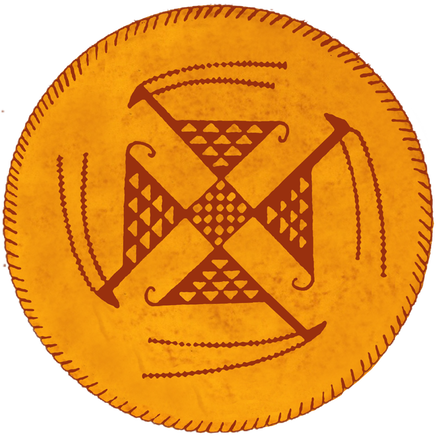
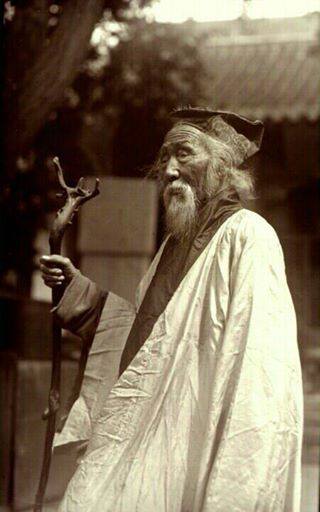
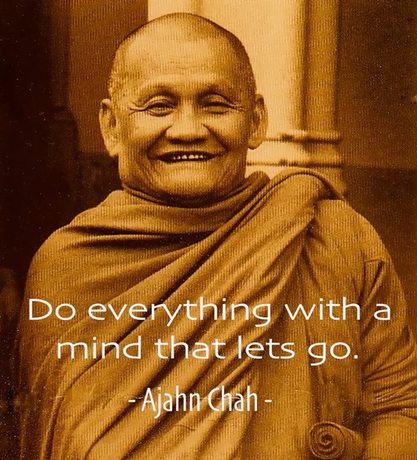
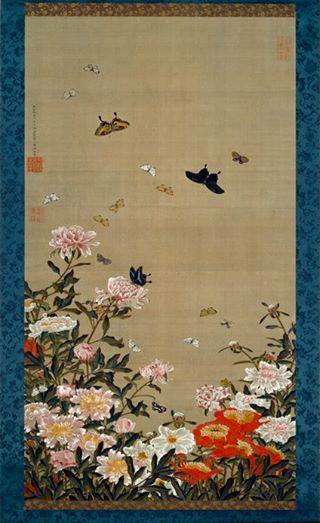
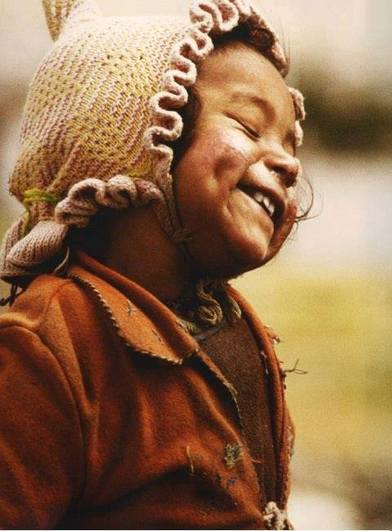
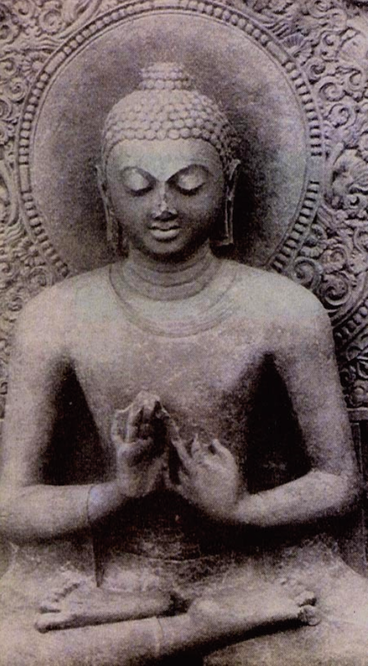
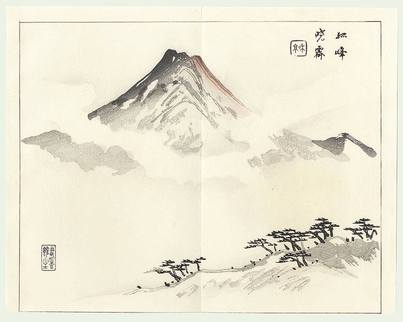
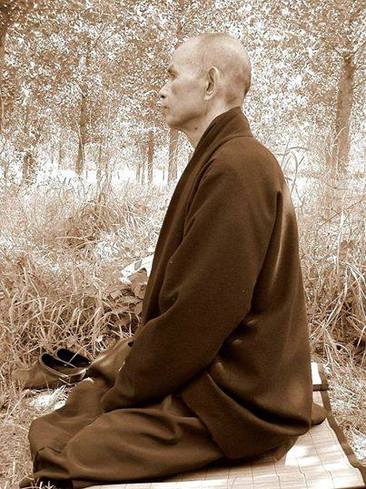
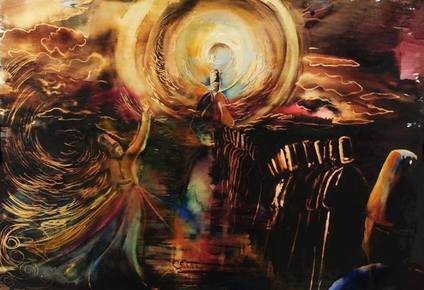
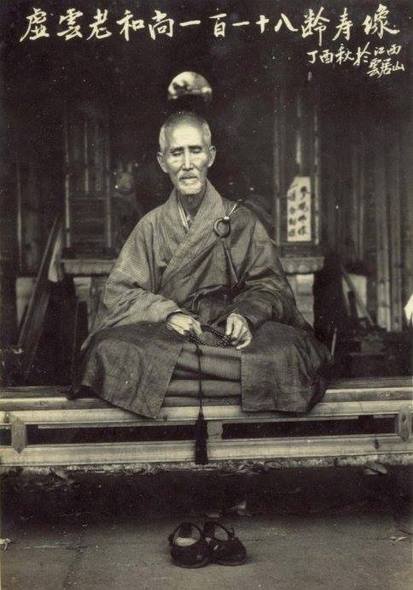

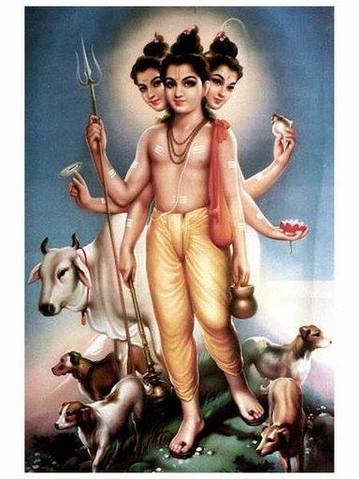
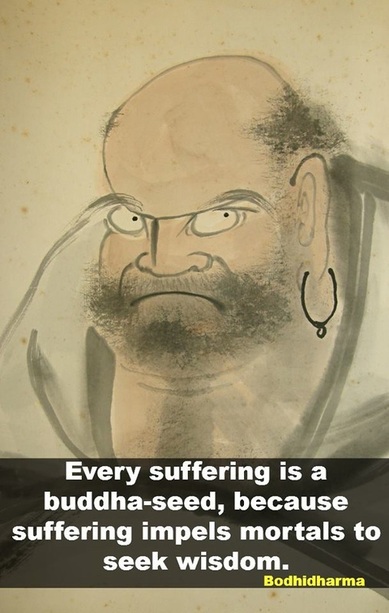
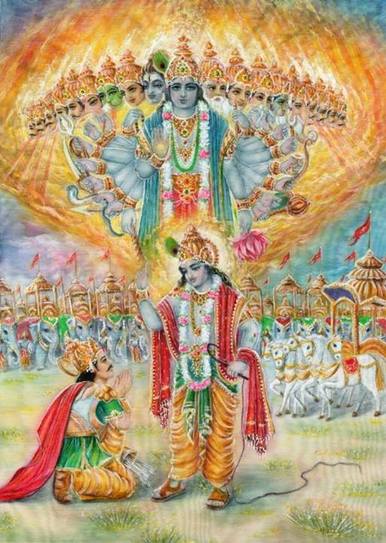
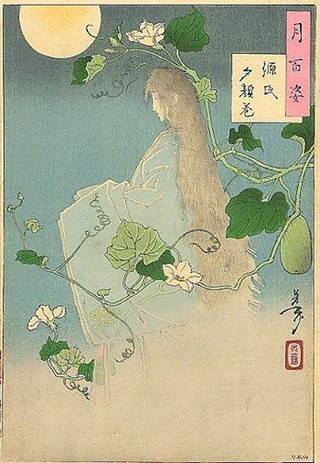
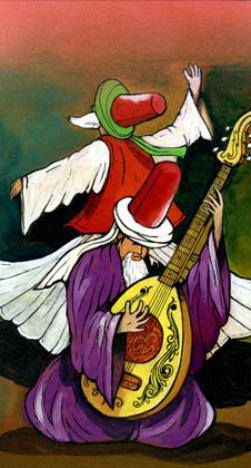
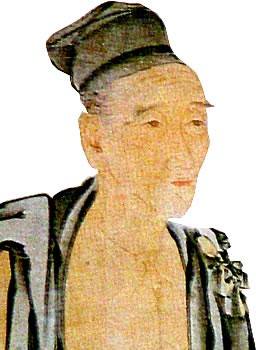
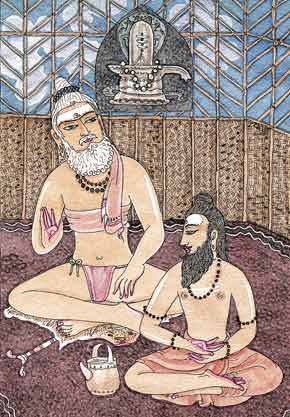
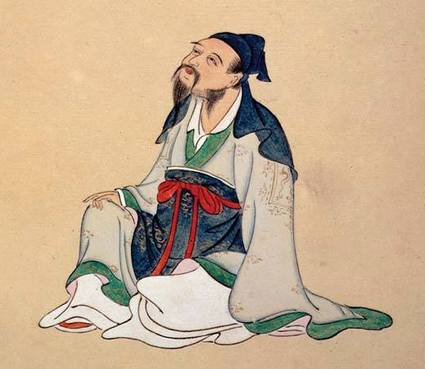
 RSS Feed
RSS Feed